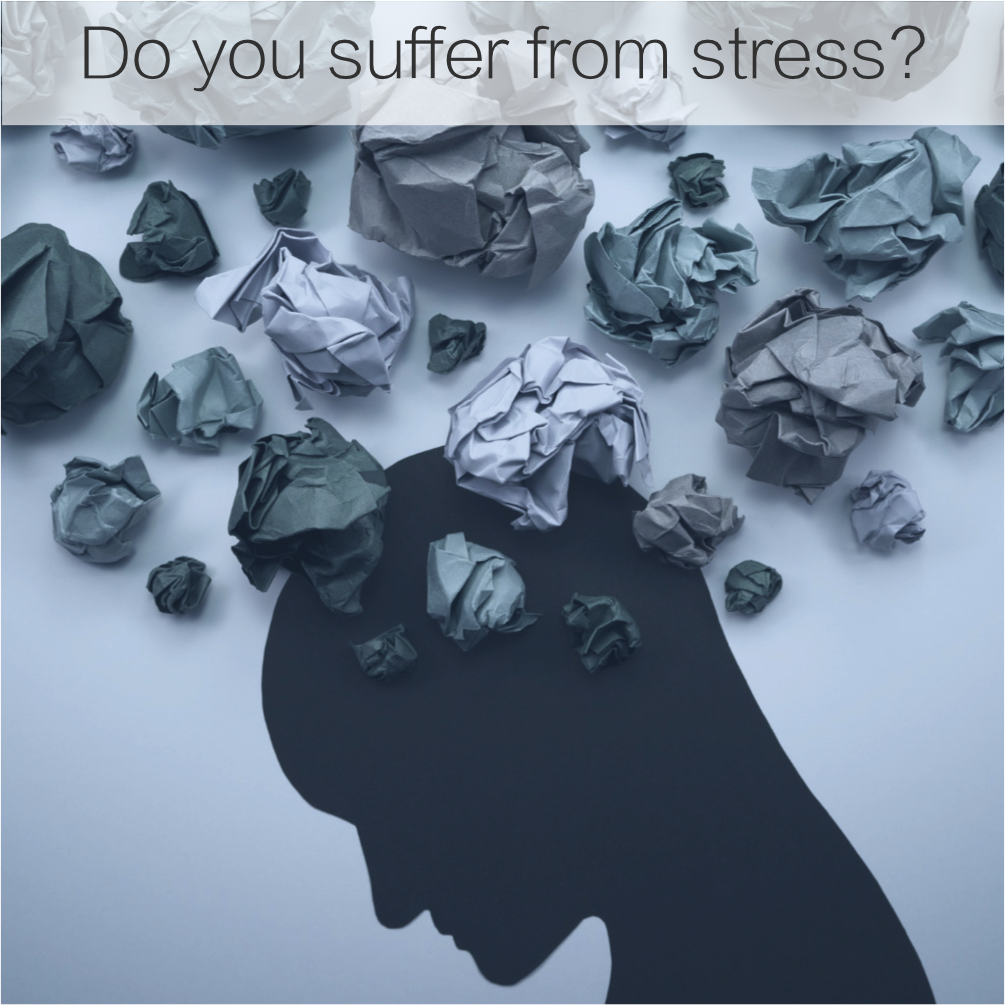Your basket is currently empty!

Do you suffer from stress?

If someone had asked me that question a few years ago, I would have said no. However, every Friday night my jaws were achy, and when falling asleep, they would smash so hard that I would wake up with the clank. Sometime later I was burnt out.
We can be so deep in our daily whirlwind that we don’t listen to ourselves and are totally unaware of the many signs of stress that manifest in us both physically and emotionally.
How does stress affect you? If you have an answer to that question the good news is that, if you are aware that you suffer from stress, then there is a lot you can do to prevent it.
There can be many causes of our stress and they depend on our circumstances. Abandoning the things that trigger it is not always an option, nor the solution I think. For that reason, our wellbeing depends on the strategies we use to mitigate the causes of stress.
If you believe you don´t suffer from stress, you have nothing to lose by paying a little attention, just in case. When we pay attention, we can identify what specific situations trigger that rush of cortisol. The physical symptoms vary. The usual suspects include tension on our temples, back or neck; pressure on our chest or changes in our breathing. In my case, when I started to pay attention I clearly identified which situations or people accentuated my physical reactions to stress.
Once the culprits have been identified, then you can create your own strategies that work for your circumstances. Here are a few that I have used successfully.
Set healthy boundaries – Sometimes we work to the point where our productivity and quality of our work is quite poor. This is not good for our jobs and worse still damages our wellbeing. You can choose how to set your own limits. For instance, I used to add a meeting in my diary titled “go home” in my diary to set some boundaries. Now that many of us are working from home I think this is more important than ever.
One activity at a time – For a long time we have aspired to “multitask”, the more we were able to handle at once the better. We even show off about this. In my experience, multitasking has exactly the opposite effect. We waste time retaking activities, deteriorating our concentration to do things well and are left frustrated. Using the “offline” function in Outlook or disable notifications on your phone can be good strategies to avoid continually being distracted by notifications.
Plan for the unplanned – In most jobs it is practically impossible to create a plan and follow it faithfully. We are constantly bombarded with interruptions or new requests everyday. The unexpected is inherent in our jobs so if we don´t create space for it we can end up defeated by the tsunami.
Add yourself to the list of priorities – We often have the intention to do something for ourselves after work and cancel at the last minute because of sudden demands. Taking care of ourselves is our responsibility too. If we don’t take care of ourselves stress can give way to the dreaded “burn-out”, not to mention our motivation and enjoyment of life.
Stress is a harsh reality of the world we live in. Nobody is going to come and rescue you from your issues with stress. Your health and wellbeing depend on your capacity to be proactive defining and sticking to your own strategies. It is in your hands!
It would be great if you share your strategies in the comments. I am sure you have great ideas to share too.
Leave a Reply